Property might not be the first career choice for many with some not realising the breadth of roles in the sector if they have no family or friends working in it. Industry initiatives like Makers & Mentors are trying to bridge the gap, Lisa Ravenscroft, chief marketing officer at Mount Anvil explains.

How did Makers & Mentors (M&M) come about?
Mount Anvil has an investment partnership with the Greater London Authority because it backs us to deliver affordable homes in London and as part of that investment partnership we’ve signed up to this set of shared values and things we care about around EDI. We have quarterly targets with the Mayor of London, these look at how we recruit, the culture we create, and then out in the sector. That’s where Makers and Mentors comes in.
We had this hypothesis that there’s lots of jolly good endeavours, in the construction and development sectors, through areas like section 106 but we see this as one plus one equals one. What we believe is that if you invest some real time and thinking upfront about those different works, you can get one plus one equals three.
What is the aim of M&M?
The initiative is designed to drive equality of opportunity from four to 84 years old. The programme aims to fill the gap in the sector early in the recruitment process by connecting with people that may not know about property, especially from different ethnicities, classes, and genders.
What was the starting point for M&M?
We started with mentoring. Makers & Mentors is a community that exists on a website where you can, in an anonymized way, seek a mentor or seek a mentee based on things other than people’s name and face. We believe, even if it’s based on someone’s name and face, the aperture for unconscious bias is real. We built that platform and rallied our network and we got to 150 mentors – from CEOS to those early in their career - which really cut cross the whole sector. Then we went about signing up mentees.
We keep running periodic campaigns for mentors and mentees and the ecosystem is thriving. Now the programme is taking on a life of its own in that we are encouraging other organisations to use our system.
What has changed about Makers & Mentors recently?
We invested in an enhancement to the platform so you can now see if your mentor or mentee is a member of LGBTQ+ network like Freehold or not. So, if you’re a Freehold mentee who wants to Freehold mentor, you can have that. If you’re a Freehold mentee who is agnostic, you can have that too. Also you can have two mentors - one who shares your lived experience and one who does the job you want to do in 10 years.
What success has the program seen?
Some of the nicest testimonials are from the mentors who say, ‘I’ve learned so much more, this is genuinely a two-way thing’. The best questions I get are people asking where are the boundaries say, for example, their mentee works for a competitor and they want to get it right.
What is M&M doing in schools?
The second strand is curriculum support. This is about taking a step back and really understanding what students at various ages want. We have then packaged that up into different pieces of well researched, well-practised communications material that we can target into schools, and we’ve open sourced it. If a school doesn’t want an external business to come in, they can take the materials.
How have business reacted to the school packs?
There’s a collective undertsanding that this is safe, because it is part of Makers & Mentors and backed by the Mayor of London. When you’re sending people into the schools they are delivering material that has been sent checked It’s pedagogically appropriate and that makes the whole thing less scary.
What is Mount Anvil doing in relation to work experience and why is that important?
Work experience has got a terrible reputation. It’s been executed terribly. It’s been a hotbed of nepotism. It’s something farmed out to the most junior person. But why is that? We are a business of 200 people and we take at least 40 work experience candidates through our doors each year. We do them in batches of 10 pupils at various points in the school year and it’s something that the whole business rallies behind. They rotate around different business functions so they can see the roles that you can have in construction and development.
Over the course of a five-day work experience the students that come through, who are from specific boroughs in London that we work with, every morning they have time with an exec team member. We listened to them as much as we talked to them. I learned loads. We ask what do you want in an employer? The level of literacy that these 16-to-18 year olds have about business culture, blows my mind. I find that super helpful and we get good feedback.
Is this all just for London?
There are mentors and mentees on there who aren’t London centric. And the curriculum is an open source so anyone can go on that website and find a pack to use in school. We’re putting our promotional energy into London, but open source is a really important facet of this. Return on investment is for the sector as a whole. The London focus is because this is being done with the Mayor of London, but it’s not a closed shop.
What do you see as the biggest challenge to diversity across the sector?
We are very bad at recruitment. The general standard and the general level of intelligence applied to recruitment in this sector, and others, is really poor. It creates a perfect sort of petri dish for growing bias. There are some very clear interventions. We’ve designed a bias busting recruitment process, where we’ve got very, very specific interventions starting with how you even describe a job both the language you use and the specificity because if you’re not specific about the outcomes you want to drive you create a gap into which bias can creep. If I could change one thing in the sector, it would be to preach the good word, that recruitment doesn’t have to be this way.
Anything else individuals can do to encourage diversity?
Every interaction you have with people is inclusive, or it’s not. We have a practice of rating meetings out of 10 to see how we can make things better. It is also about speaking truth to power as I’m not going to bite your head off and I can learn too.
Why is diversity important?
We can have 20 people around the table but if they all think the same way we just have one idea.
Makers & Mentors
Makers & Mentors was created to:
- Create equality of opportunity by removing unconscious bias
- Create a general understanding of the industry in communities that have less access to it
- Provide opportunities for younger generations to engage with the built environment and learn that it’s much more than just bricks and mortar.
A Makers & Mentors work experience participant said: “The week I spent participating in Mount Anvil’s Makers and Mentors scheme was so insightful. I learnt from industry professionals across the company, which left me with a comprehensive understanding of an industry I had no prior knowledge in beforehand. During that week, I met my mentor Tom and continued to help me long after - even helping me secure my first post-graduate role with an internship.”
Click here to find out more and get involved






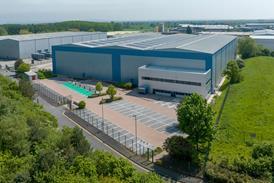

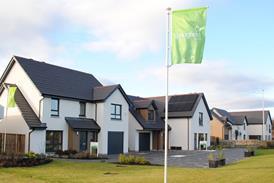



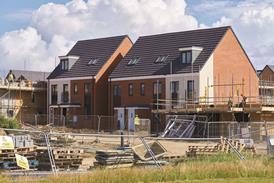






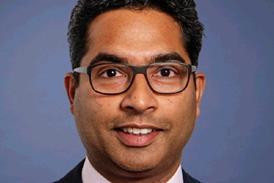






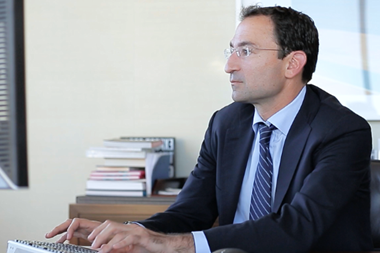
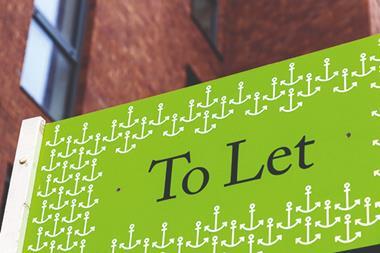



No comments yet